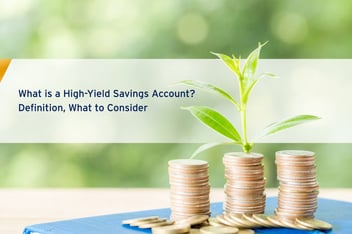
Can You Spend From a Savings Account in Nigeria?
Author Taiwo Temitope-Adesope
Many Nigerians have savings accounts, but not everyone is clear on whether they can spend from them. Savings accounts are a popular way to save money in Nigeria, but they are not the same as current accounts. While current accounts are designed for day-to-day transactions, savings accounts are intended for long-term savings goals. This article will explore whether it is possible to spend from a savings account in Nigeria and provide some tips for managing your savings.
First, it is important to understand that savings accounts in Nigeria are not designed for regular spending. They are intended for long-term savings goals, such as buying a house or saving for retirement. While it is possible to withdraw money from a savings account, there are usually restrictions on the number of withdrawals you can make in a month. Additionally, savings accounts typically offer lower interest rates than current accounts, so it may not be the best option for regular spending.
That being said, there are some situations where it may be necessary to spend from a savings account. For example, if you have an emergency expense and do not have enough money in your current account, you may need to withdraw money from your savings account. However, it is important to keep in mind that this should be a last resort and that you should try to replenish your savings as soon as possible.
Understanding Savings Accounts in Nigeria
Savings accounts are a popular type of bank account in Nigeria that allow individuals to deposit and save money over time. They are designed primarily for the purpose of saving money and typically offer a lower interest rate than fixed deposit accounts. In this section, we will explore the different types of savings accounts available in Nigeria, the interest rates and benefits associated with these accounts, and the banking regulations and requirements that govern them.
Types of Savings Accounts
There are several types of savings accounts available in Nigeria, each with its own features and benefits. The most common types of savings accounts include:
● Individual Savings Account: This is the most typical form of savings account that many Nigerians utilize. It is quite simple and is used for deposits and withdrawals. There is usually no minimum balance requirement for this type of account.
● Joint Savings Account: This type of account is designed for couples or business partners who want to save money together. It requires two or more people to open the account and allows them to save and withdraw money jointly.
● Children's Savings Account: This type of account is designed for parents who want to save money for their children's future. It typically offers a higher interest rate than regular savings accounts and may have special features such as no minimum balance requirement.
Interest Rates and Benefits
Savings accounts in Nigeria typically offer a lower interest rate than fixed deposit accounts, but the funds are more easily accessible. The interest rate for savings accounts in Nigeria varies depending on the financial institution and the type of account. Some financial institutions offer tiered interest rates, where the interest rate increases as the account balance grows.
In addition to earning interest on their savings, many savings accounts in Nigeria offer other benefits such as free ATM withdrawals, online banking, and mobile banking services. Some accounts may also offer cashback rewards or discounts on certain transactions.
Banking Regulations and Requirements
Savings accounts in Nigeria are governed by the Central Bank of Nigeria (CBN) and must comply with certain regulations and requirements. Financial institutions that offer savings accounts must maintain a minimum reserve requirement with the CBN and are subject to regular audits to ensure compliance with banking regulations.
To open a savings account in Nigeria, individuals must provide a valid form of identification such as a national ID card or passport, proof of address, and a minimum deposit. The minimum deposit requirement varies depending on the financial institution and the type of account.
Overall, savings accounts in Nigeria are a great way for individuals to save money and earn interest on their savings. With different types of accounts, interest rates, and benefits available, it's important to do your research and choose the account that best suits your needs.
How to Access Funds
If you have funds in your savings account, you can access them in various ways. This section will cover the different methods and options available to you.
Withdrawal Methods
You can withdraw money from your savings account by visiting your bank's branch office and filling out a withdrawal slip. You will need to provide proper identification, such as your passport or driver's license, and your bank account number. You can also withdraw money from an ATM using your debit card. Most banks in Nigeria offer ATMs that are accessible 24/7. Some banks also offer POS (Point of Sale) machines, which allow you to withdraw money from your savings account at participating merchants.
Transaction Limits and Fees
It is important to note that savings accounts in Nigeria have transaction limits and fees. These limits and fees vary from bank to bank. For instance, GTBank allows a maximum daily withdrawal limit of N150,000, while UBA allows a maximum daily withdrawal limit of N100,000. Access Bank charges a fee of N50 for every ATM withdrawal, while UBA charges N65. It is essential to check with your bank to know the transaction limits and fees associated with your savings account.
Online and Mobile Banking Options
Most banks in Nigeria offer online and mobile banking options, which allow you to access your savings account from anywhere and at any time. With online banking, you can check your account balance, transfer funds, pay bills, and even request a checkbook. Mobile banking, on the other hand, allows you to perform similar transactions using your mobile phone. To use these services, you will need to register with your bank and download their mobile application.
In conclusion, if you have funds in your savings account, you can spend them by using any of the withdrawal methods mentioned above. However, it is essential to be aware of the transaction limits and fees associated with your bank account. Additionally, online and mobile banking options provide a convenient way to access your savings account and perform transactions from anywhere.
Choosing the Right Savings Account
When it comes to choosing the right savings account in Nigeria, there are several factors to consider. This section will explore the key factors to consider when choosing a savings account in Nigeria.
Comparing Bank Offerings
There are several banks in Nigeria that offer savings accounts. Some of the most popular banks include Stanbic IBTC, Guaranty Trust Bank (GTB), and United Bank for Africa (UBA). When comparing bank offerings, it is important to consider the interest rates offered by each bank. Some banks offer higher interest rates than others, so it is important to shop around and compare rates.
Another factor to consider when comparing bank offerings is customer service. It is important to choose a bank that provides good customer service and is responsive to customer needs. This can make a big difference in the overall banking experience.
Looking to open a savings account and you don’t know where to start? Start by comparing on nairaCompare!
With nairaCompare, you can:
- Compare Savings Accounts side-by-side: Find the best interest rates and terms to match your needs.
- Filter and sort based on your preferences: You can filter based on how much you want to save and how long you want to save for!
- Open an account on the platform: Skip the hassle and save valuable time.
Don't settle for the first savings account you find. Compare and save smarter with nairaCompare!

Account Features and Accessibility
In addition to interest rates and customer service, it is important to consider the features and accessibility of the savings account. Some banks offer online banking and mobile banking, which can make it easier to manage your savings account. It is also important to consider the accessibility of the bank's branches and ATMs. If you travel frequently, it may be important to choose a bank with a wide network of branches and ATMs.
Another factor to consider is the accessibility of the savings account. Some banks require a minimum balance to open a savings account, while others do not. It is important to choose a savings account that is accessible and fits your financial needs.
Overall, choosing the right savings account in Nigeria requires careful consideration of several factors. By comparing bank offerings and considering account features and accessibility, you can choose a savings account that meets your financial needs and provides a positive banking experience.
Maximizing Savings Account Benefits
Savings accounts are an excellent way to store money securely while earning interest. However, to maximize the benefits of a savings account, individuals need to manage their accounts effectively. In this section, we will discuss some tips for managing savings accounts in Nigeria.
Managing Your Account for Growth
One of the primary benefits of a savings account is the interest earned on the account balance. To maximize this benefit, individuals should look for savings accounts with high-interest rates.
Another way to grow your savings account is to make regular deposits. Many savings accounts require a minimum deposit, so it is essential to understand the requirements of your account. Individuals should aim to save at least 10% of their income to build an emergency fund and work towards long-term financial goals.
Avoiding Common Fees and Penalties
Savings accounts may come with service charges and penalties, which can eat into your savings. To avoid these fees, individuals should read the terms and conditions of their savings account carefully. They should also keep track of their account balance to avoid falling below the minimum balance requirement.
Additionally, individuals should avoid making frequent withdrawals from their savings account. Most savings accounts have a limit on the number of withdrawals allowed per month. If you exceed this limit, you may be charged a penalty fee.
In conclusion, savings accounts can be an excellent tool for managing finances and building a secure financial future. By following the tips above, individuals can maximize the benefits of their savings accounts and avoid unnecessary fees and penalties.
Conclusion
In Nigeria, savings accounts are a popular way for individuals to save money and earn interest on their deposits. While savings accounts are designed to help individuals save money, they also offer flexibility in terms of accessing funds when needed.
It is important to note that there may be restrictions on the number of withdrawals allowed per month, and exceeding this limit may result in penalties or fees. Additionally, interest rates on savings accounts may vary depending on the bank and type of account.
To ensure that individuals are able to make the most of their savings accounts, it is recommended that they research the different types of savings accounts available and compare interest rates and fees. This will help them choose the account that best suits their needs and financial goals.
Overall, savings accounts can be a useful tool for individuals looking to save money and earn interest on their deposits. With proper research and understanding of the terms and conditions of their account, individuals can make the most of their savings and achieve their financial goals.
About Author

Taiwo Temitope-Adesope
Taiwo is a passionate storyteller and strategist dedicated to empowering women and crafting compelling narratives. A First-Class graduate in Mass Communication from Covenant University, she specializes in writing, public relations, and digital marketing. As a Content Manager at Suretree, she drove a 50% increase in web traffic through SEO and boosted website engagement by 60% in just four months. Her leadership experience includes serving as Public Relations Officer for the Covenant University Student Council and contributing to impactful volunteer initiatives. With expertise in strategic thinking and business acumen, Taiwo continues to create stories that inspire confidence and imagination.









